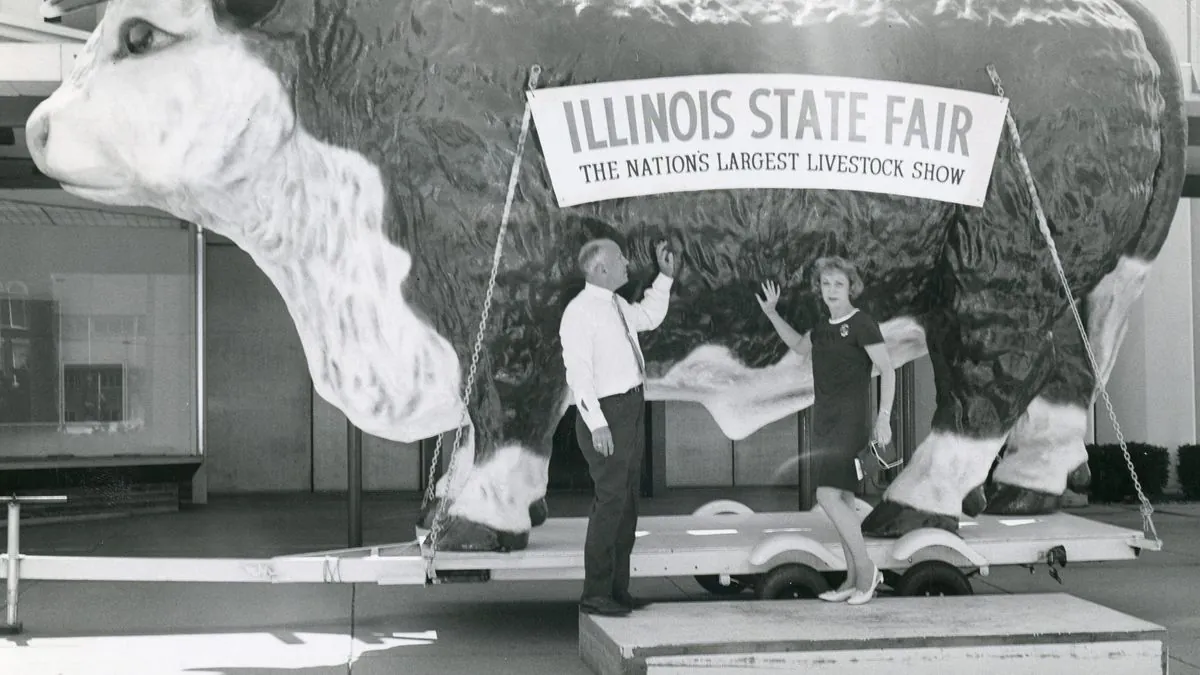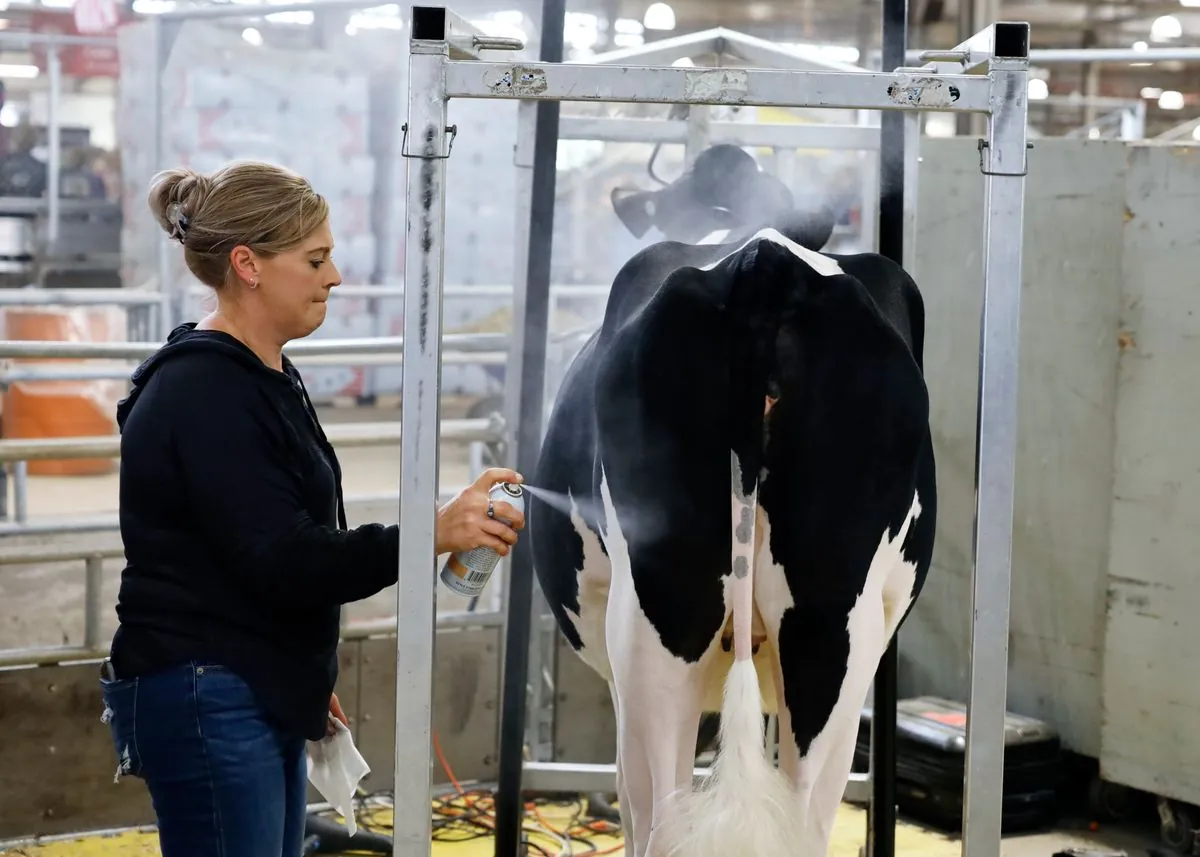State Fairs Adapt to Bird Flu: Fake Cows and New Rules Reshape Traditions
State fairs across the US are adapting to the bird flu outbreak, introducing fake cows for milking demos and new testing rules for farmers. The CDC advises caution but states the H5N1 risk to the public remains low.

In response to the ongoing H5N1 avian influenza outbreak, state fairs across the United States are implementing innovative solutions to maintain beloved traditions while prioritizing public safety. The virus, which has affected dairy herds for the first time this year, has prompted fair organizers to rethink classic attractions and introduce new protocols.
At the Michigan State Fair, a pair of life-sized fiberglass cows named Milkshake and Buttercup have taken center stage for the popular milking demonstration. These artificial bovines, complete with rubber teats and water-filled udders, offer a hands-on experience without the risk of disease transmission. Similarly, the Minnesota State Fair has introduced Olympia, a fake dairy cow, for its milking event.

The adaptations extend beyond demonstrations. Several farm states, including Wisconsin, have implemented stringent testing requirements for livestock. Lactating cattle must now test negative for H5N1 within a week of arriving at the fairgrounds. This new rule has created logistical challenges for farmers like Rick Thompson, who has attended the Wisconsin State Fair for 46 years.
"It's not a convenient thing."
These measures come in response to the spread of avian influenza, which has infected over 190 dairy herds nationwide since March 2024. The outbreak has also affected four dairy workers, raising concerns about potential human-to-human transmission.
While the Centers for Disease Control and Prevention (CDC) maintains that the H5N1 risk to the general public remains low, they advise fairgoers to exercise caution. The agency recommends avoiding eating, drinking, or touching anything in animal areas at fairs.
Despite these precautions, some visitors remain unconcerned. O.E. Glieber, an 88-year-old fairgoer from Delafield, Wisconsin, expressed skepticism about the risks, stating, "I don't think it's a big risk. The CDC overreacts with a lot of stuff."
The impact of the outbreak extends beyond public exhibitions. Michigan has banned lactating cows from all public events until the state goes two months without detecting an infected herd. This decision has affected the state's annual fair, with organizers forced to find alternative attractions.
As the situation evolves, fair organizers and farmers continue to adapt. In Minnesota, extra protective equipment has been procured for livestock crews, and pregnant dairy cows have been excluded from the fair's birthing center. These measures reflect the ongoing efforts to balance tradition with public health concerns in the face of the H5N1 outbreak.


































